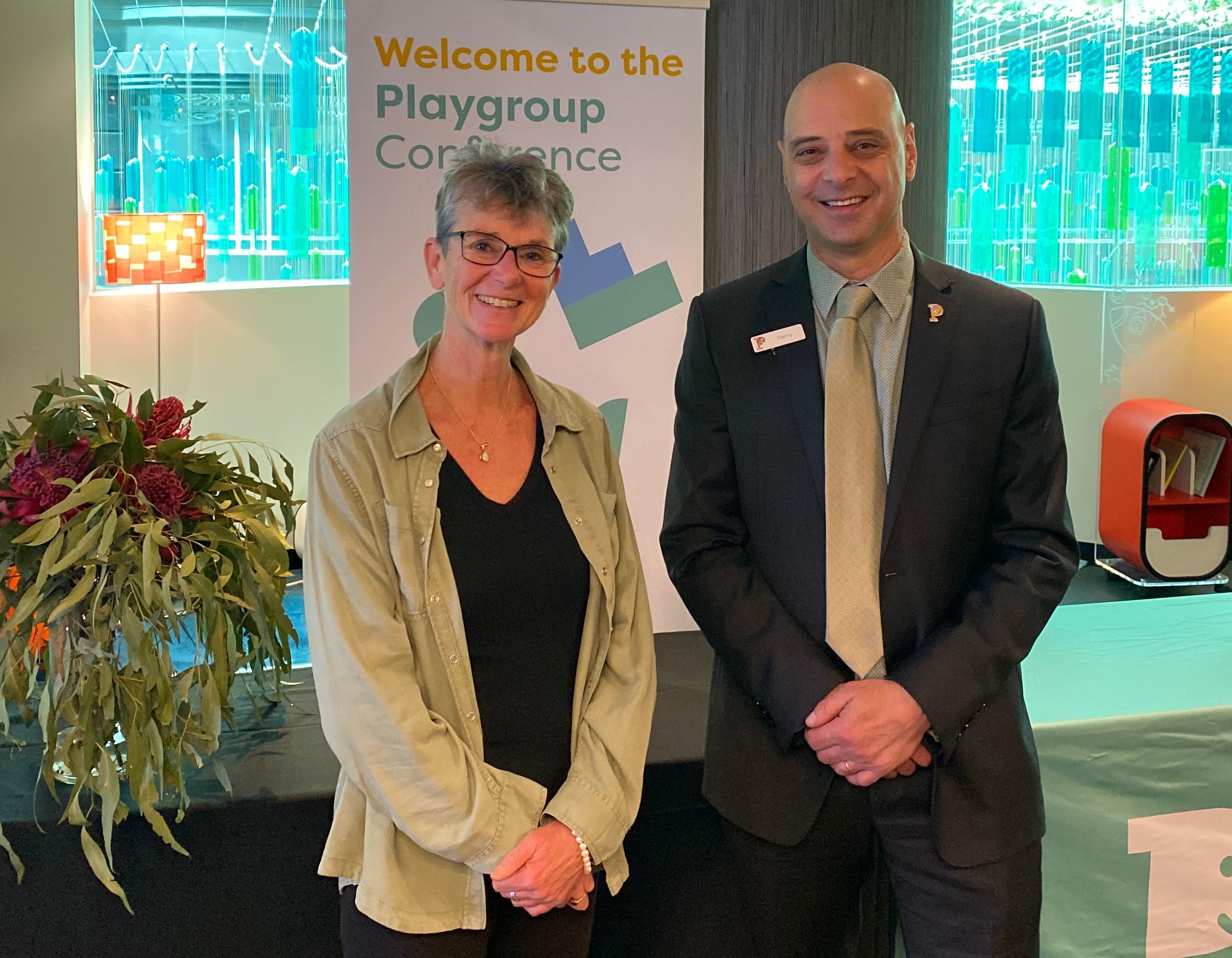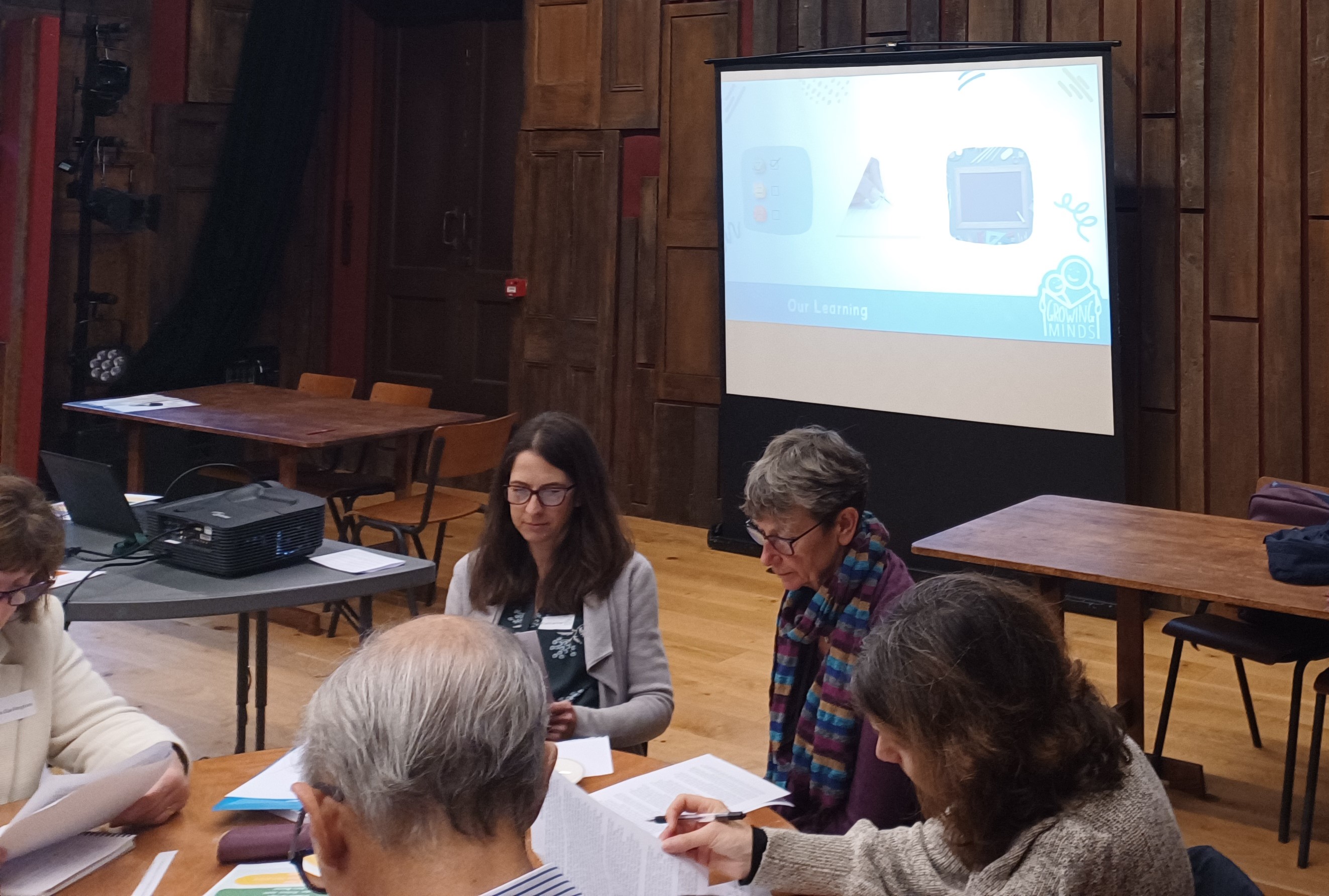Blue
peep progression pathway with Home-Start - building confidence and opening doors
Home-Start Edinburgh West and South West (HSEWSW) have steadily built the Peep provision they offer and the progression support for parents. The Peep Progression Pathway is a key element of this. The three case studies they have kindly shared with us here shows how through the skill and dedication of their staff, and using the Peep Learning Together Programme and Peep Progression Pathway:
- parents who were wary of 'services' have engaged;
- parents and children have fun at Peep;
- the home environment has improved;
- parents have completed qualifications which have taken them nearer their career goals;
- parents have progressed from attending Peep to training as Peep practitioners - gaining qualifications and confidence on the journey.
Margot MacKenzie, Senior Coordinator at HSEWSW highlighted how much she has valued the support from the Peeple Scotland team over the years.
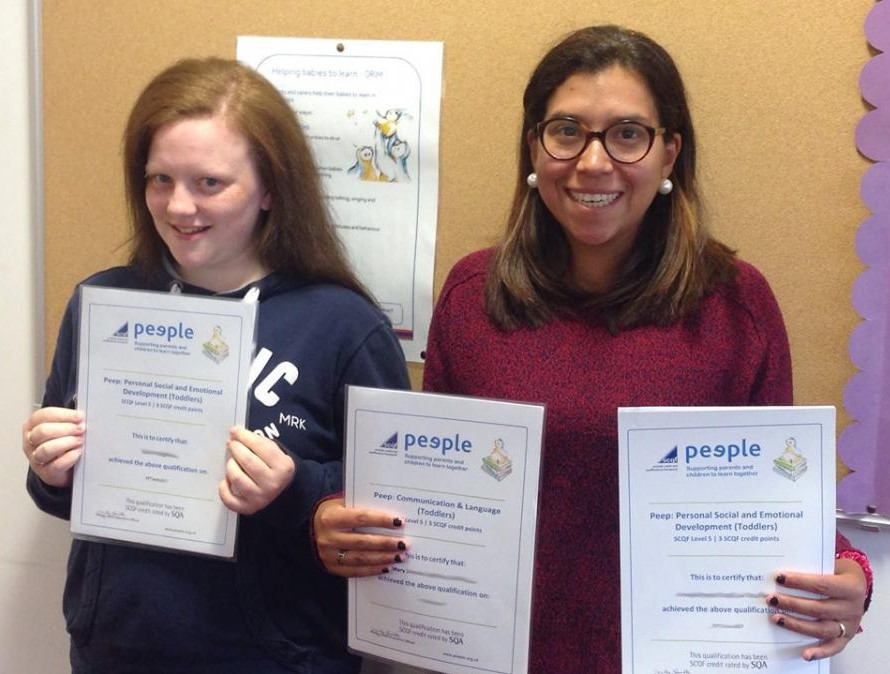
Feature box colour:
'Janey is obtaining real qualifications at the same time as enhancing her parenting skills. This is improving her confidence and helping her on her path to reaching her ambition'
'Susan was proud to share her Peep Progression Pathway workbook at the multi-agency meeting'
'I think it is a really good opportunity for parents to get going and start learning something in a relaxed and carer-friendly environment. You can bring your children' - Hazel, Peep parent
If you would like to find out more about the Peep Progression Pathway, please get in touch: pathway@peeple.org.uk.
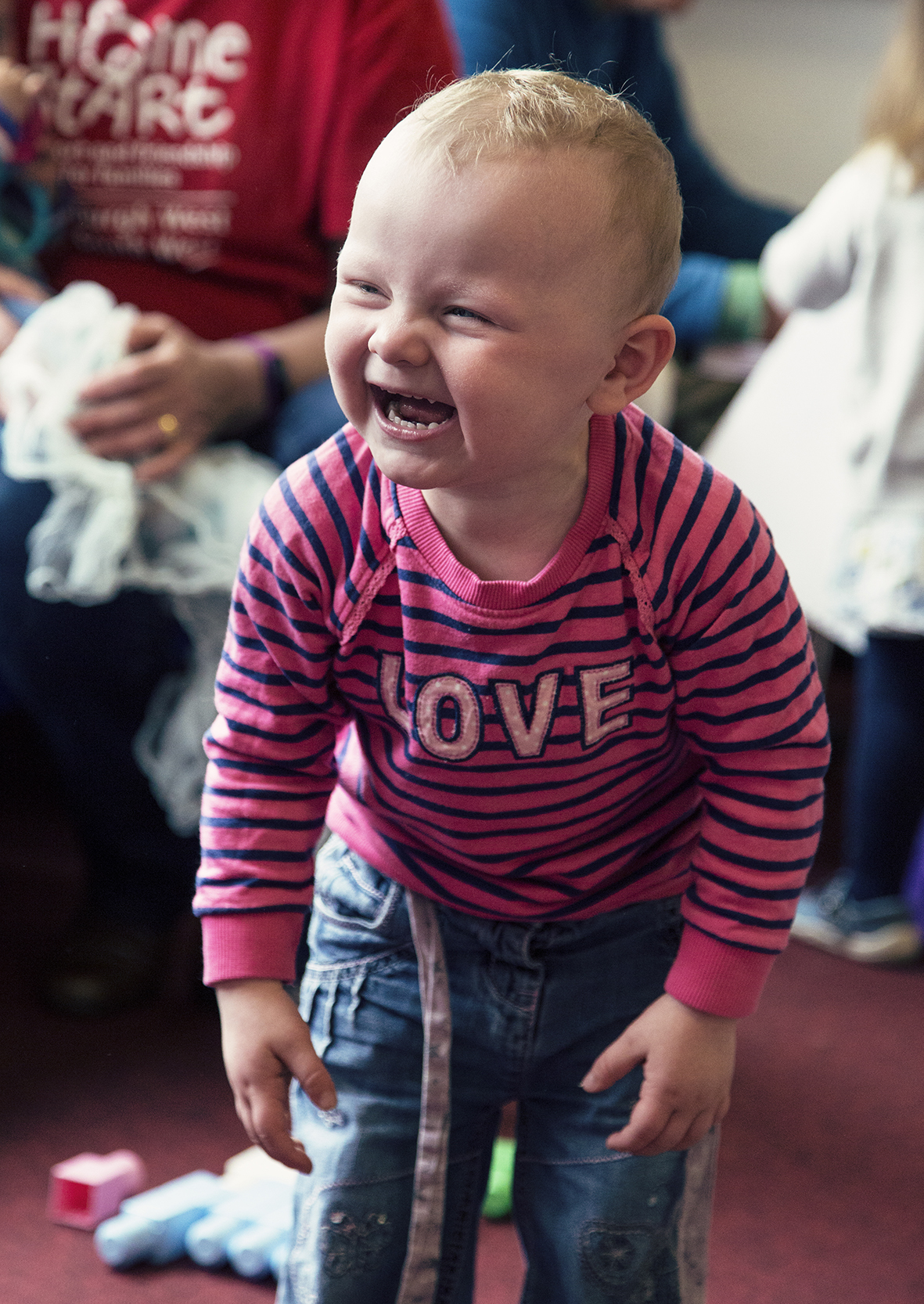
Side Quote Color:
how to create a peeple website account
This information is for practitioners who have completed a Peep Programme Training course, and want to access or download the relevant Programme resources.
If you already have a Peep login account from previous Peep training: Email us with your username and latest training, and we’ll add access for the relevant programme area to your existing login account.
- Click on the green 'login' button in the menu bar at the top of the website.
Then click the green ‘Create an account’ button on the right.
 On the Registration page (see screenshot): Use the same email address for your ‘Username’ and ‘Email address’. Fill in the remainder of the page, then read and accept the Terms & Conditions at the bottom, and click the ‘Submit’ button.
On the Registration page (see screenshot): Use the same email address for your ‘Username’ and ‘Email address’. Fill in the remainder of the page, then read and accept the Terms & Conditions at the bottom, and click the ‘Submit’ button.
- You’ll receive a confirmation email: You will immediately receive an automated email from info@peeple.org.uk, to let you know that we’re in the process of checking and approving your account: Email Subject: ‘Account details for [your email address] pending admin approval’.
If you don’t receive that email (and it isn’t in your junk or spam folder) - please email us to let us know. The automated emails occasionally get blocked by council firewalls, so we’d need to finish setting it up.
- Choose a password: Within a day (or two) we'll have checked and approved your account, and you’ll receive a second email asking you to choose a password. Once you’ve chosen a password, you’ll get instant access to the login area.
If you don’t get the email within two working days please check your junk/ spam box, and if it’s not there, contact us.
 Log-in: When you’ve logged in you’ll see a webpage similar to the following screenshot. It will show your email address/ username in blue (rather than support@...).
Log-in: When you’ve logged in you’ll see a webpage similar to the following screenshot. It will show your email address/ username in blue (rather than support@...).
The green '... area' buttons will show for the relevant training courses that you have attended (or if you signed up for Practitioner Accreditation), giving access to the programme resources and delivery support. The green ‘Members Area’ button gives access to the Peep Learning Together Programme (LTP) resources.
If you can't see any green buttons after logging in: We have a mysterious technical issue with the button for the Peep TALK Area not always showing if you have only attended Peep TALK training. If this affects you, please log in, then go to this webpage link: https://www.peeple.org.uk/peep-talk-area. This will give you access to the area - you might want to bookmark/ save the page (just remember to be logged in to open it). We're sorry for any inconvenience if this affects you.
To log-in in future: just go to www.peeple.org.uk and click the green ‘login’ button on the top right. You can tell if you're logged in, as the green button at the top will now say 'logout'. If you're looking at non-login pages (from any of the sections in the top blue menu, such as a case study) and you want to go to a login area, just click the green 'my area' button at the top.
Remember - your Username = your Email address (and can be used from any computer). If you forget your password, click on forgotten your password? on the log-in page.
If you want to change your username in future, contact us and we'll change it for you.
We hope you find the website useful, and enjoy using Peep – do get in touch with any questions or comments any time.
Peep Training and Support Team | tel 01865 397970 | info@peeple.org.uk
Feature box colour:
Side Quote Color:
News: Remembering Teresa Smith, former Peeple Trustee
Here are a few words from Sally Smith, our CEO, following the sad news about the death of Teresa Smith, former Peeple Chair of Trustees:
 Teresa was an original member of the advisory group which supported Mike O'Regan and Bernard Clarke in the developing the vision and mission for the charity – and then advising the board and management on the practicalities of developing and delivering the Peep Learning Together Programme. She contributed, in particular, to establishing the research, which became such a foundation of our success.
Teresa was an original member of the advisory group which supported Mike O'Regan and Bernard Clarke in the developing the vision and mission for the charity – and then advising the board and management on the practicalities of developing and delivering the Peep Learning Together Programme. She contributed, in particular, to establishing the research, which became such a foundation of our success.
In 2012, Teresa became a trustee at a pivotal moment for our charity. Martin Roberts, then Chair, said he wanted her on the board because she was the ‘wisest woman he knew’. That was the point at which I took over as CEO and I came to benefit not just from her wisdom but also her compassion and kindness – which permeated the entire board. She became Chair in 2013. It was such a privilege and a pleasure to work with her. I knew I could always rely on her insight and judgement – as well as her willingness to listen when I needed time to talk. She stepped down as Chair in 2018 but continued to serve on the board until last year, when we appointed her to the honorary position of Listening Ear and Drinking Buddy (LEDB) as she loved to share a glass of wine or cup of coffee with her friends and colleagues at Peeple and we all hoped to benefit from her wisdom and kindness for many years to come.
Teresa was a much respected and well-known researcher, academic, lecturer and government advisor. In every area of her work she was concerned to address disadvantage, poverty and injustice. She was a member of the University of Oxford's Department of Social Policy and Intervention .
She attended our whole staff Celebration Day in 2022 when she embraced the spirit of fun and spent the coffee break leading by example in the playground (including on the zipwire!).
 Here are just a few of the thoughts from Peeple staff and board:
Here are just a few of the thoughts from Peeple staff and board:
“Teresa was such a joyous yet wonderfully wise lady.”
“She was a wise, energetic and intelligent person, totally dedicated to supporting the work of Peeple from the very beginning. She will be missed by so many colleagues and friends alike.”
“So sad. I will always remember her vibrancy and sheer niceness.”
“Teresa was a beautiful, kind, warm, generous person.”
We are very honoured that Peeple is one of the family’s chosen charities, and for the generous donations that will help us continue our work supporting families, that Teresa helped to start.
I love this picture of Teresa, holding the wonderful cake she baked for a Little Peeple event, lighting up the room with her beautiful smile!
Feature box colour:
Side Quote Color:
Peep TALK (Talking and Listening Kit) Training
Aims – the Peep TALK Programme Training equips practitioners to:
- expand your knowledge, skills and understanding in supporting parents with their young child’s communication and language development, including those who are concerned about delayed language development
- use the Peep TALK programme as a flexible toolkit, offering parents strategies and activities to boost their children’s language and communication during everyday interactions in the home learning environment
- deliver Peep TALK sessions with parents and children together, in one-to-one or group sessions

During the training: You will explore practical delivery ideas, strategies and resources, using the Peep TALK Programme. The training values and builds on your knowledge, skills and experience.
Online access to TALK programme resources: The training includes on-going access to the Peep TALK programme, full of practical ideas and activities. It contains eight group or 1:1 sessions, along with ‘Talking at Home’ handouts, tips and video clips for you to share with parents and their children. If you've already completed Peep TALK Training and created a website account you can log in here to access your Peep TALK resources.

Who should attend Peep TALK training:
Peep TALK is for any practitioners working with parents of young children, particularly parents who are concerned about their child’s developing speech, language and communication. This could, for example, include staff in family hubs or centres, children's centres, community centres, or education and childcare settings.
Peep TALK aligns with our other Peep Programmes and Training, focusing on the why, what and how of supporting parents with their children’s development in a fun and flexible way.
Why Peep TALK Training is needed:
Speech, language and communication is the most common type of additional support need identified by primary schools. Early intervention is crucial in supporting children's communication (and preventing problems) in the earliest years, as well as identifying language difficulties early on.
The evidence-informed Peep Talking and Listening Kit was developed by Peeple in collaboration with Speech & Language Therapists, building on our joint work with early years settings and families over the past few years. It can be used to support all children with a developmental age of approximately 18 months to four years, including those waiting to see a speech and language therapist.
Peep TALK delegate feedback:
- "Excellent training, plenty of time to look at all the session plans and it was lovely to see them come to life during the demos."
- "The TALK training gave lots of knowledge and also how to share it with parents and carers in a very accessible way."
- "This was a brilliant training, with all the strength of the LTP [Learning Together Programme] but well-focused on Talking and Listening. The session plans are well planned and thought out with a good mixture of activities."
Duration:
- One day: 9.30 - 4.30pm
Training price:
£215 + vat per person, including online access to to all the planning and delivery resources
How to book:
> Check course dates for open courses then complete and return the Booking Form for Peep TALK Training
> Download our Peep TALK Training flyer for practitioners
> Find out about arranging your own in-house training course (online or face-to-face)
> Find out about a free Information briefing for managers
For online courses: We use Microsoft Teams. Delegates should each have a laptop/ computer or tablet to use, at home or at work; if this is a problem please contact us in advance.
Please book and send delegate details at least 10 working days before the course, to ensure that your training delegate pack reaches you in the post in time.
Payment and Cancellation Terms and Conditions: Peep Learning Ltd, the trading arm of Peeple, will invoice you after receiving this booking form. Payment is due within 30 days of invoice date. Fees are only refundable if cancelled more than two weeks before the course.
Peep Learning Ltd Vat Registration no: 768 4173 94.
Contact us with any questions: training@peeple.org.uk or tel 01865 397970
Feature box colour:
find out more or book training
tel 01865 397 970
training@peeple.org.uk
> dates & booking
> in-house training
> training courses
> sign up to our e-newsletter


Side Quote Color:
Making the most of Nappy Time
Changing baby's nappy is something we often do on autopilot, we do it so many times a day that we can consider ourselves nappy changing ninjas! Nappy time is also a chance to spend some bite-sized 1:1 bonding time with your little one, especially if you have more than one child.
It's surprising how much learning and play goes on during nappy changes too - even though it might not feel like it as you're trying to do the whole thing one-handed while you're wrestling them back onto the changing mat with the other... When they're in a more chilled out mood, there's lots of time for eye contact, singing a song and encouraging your little one to join in, helping them learn the names of body parts as they kick their legs around or smiling and laughing together. And if the two of you get into the habit of singing at nappy time it might even win out over the grouchy escapee act some of the time!

Feature box colour:
Side Quote Color:
News: Peeple Family Fun Day
 CBeebies star Nigel Clarke joined our recent Family Fun Day at the Peeple Centre in Oxford. 400 parents, babies and children enjoyed a day of free activities with local partners including The Story Museum, Ashmolean Museum and Oxfordshire Libraries.
CBeebies star Nigel Clarke joined our recent Family Fun Day at the Peeple Centre in Oxford. 400 parents, babies and children enjoyed a day of free activities with local partners including The Story Museum, Ashmolean Museum and Oxfordshire Libraries.
Nigel Clarke, a Peeple Ambassador, delighted children with a story session and chatted with families about the positive impact of everyday play and learning on children’s earliest years. Oxford University BabyLab shared information on early brain development and current research, and Oxfordshire Fire Service invited children to climb on board their fire engine and ask questions.
Families joined in lots of Peep activities including sensory and water play, singing and storytelling, parachute games, playdough and craft activities. Local community-based dance school Messy Jam performed for the crowds, and children enjoyed the free face painting, bouncy castle and snacks, kindly sponsored by MPD Print, Co-op and Asda.
As Peeple CEO Dr Sally Smith commented: ‘We have been embedded in the Leys and Littlemore community for over 25 years, supporting parents to recognise that the little, everyday things that they do with their children has a huge impact on their learning. Today is a thank you to families and a chance to showcase our work, and that of our local partners, to the wider community. It’s been a hugely successful day.’
The Family Fun Day kick starts a summer of free activities that Peeple will be taking part in across the county. Please email us at families@peeple.org.uk to find out more.
Feature box colour:
Side Quote Color:
Blog: 3 key messages from new Sure Start research for organisations using Peep Programmes
The new research by the IFS into the impact of Sure Start on children's outcomes was a brilliant validation of the premise on which most of us work. Early intervention can be cost-effective and make a real, positive difference to narrowing the gap in children's outcomes. Sure Start and later Children’s Centres created a one-stop shop for families, bringing together pre and post-natal health services, parenting support including for children with SEND, early learning and childcare, and parental employment support. Similar goals were echoed in Scotland (e.g. through GIRFEC, Getting it right for every child), the Republic of Ireland (e.g. with local Area Based Childhood (ABC) Programmes), and in Australia (through the Playgroup movement).
How is it relevant to Peep practitioners today?
1. Reaching and engaging the families who might benefit the most
As the IFS research found, the positive impacts of Sure Start were greater for the children who lived near the earlier – and better-funded – Sure Start Local Programmes. ‘Much of this extra budget was spent on parental outreach, focused on reaching out to families who were less likely to use and more likely to benefit from Sure Start.’
Most of us these days don't have that same level of funding, BUT there are things we can do to encourage all families to come along. Over the years we have learned from other research on reaching families and gathered tips and experiences from Peep practitioners.
> You can find a list of these practical ideas on the 'Recruiting families and promoting your Peep sessions' page in the login Delivery Support section of the website. If you’re a manager who doesn’t have a login account, just email us at support@peeple.org.uk and we can send you a PDF version of the info. It includes successful recruitment strategies recommended by Peep practitioners, and an action plan of ideas.
2. Having a friendly and good quality offer for families - with a focus on strengthening relationships and narrowing the attainment gap
As well as focusing on outreach, the earlier Sure Start Local Programmes ‘had much more community input into what programmes were offered.’ The Peep Learning Together Programme has a wide range of topics that practitioners and families can choose from, with a common underpinning theme of helping to improve relationships and the quality of the home learning environment. All Peep programmes offer a strengths-based approach, starting where families are, and valuing and building on what they already do.
The IFS research found that children who lived within 2.5km of a Sure Start centre for their first five years performed 0.8 grades better in their GCSEs. However, the effects were six times greater for those eligible for free school meals than for those who weren’t, with an average improvement of three GCSE grades (e.g. getting 3 Cs rather than 3 Ds).
A similar trend was found in the Peep Learning Together Study, a randomised controlled trial (RCT), which measured the impact of the Learning Together Programme on three year olds. Overall the Programme made a positive difference of an additional two months’ progress over a five-month period to children’s early literacy development. But children eligible for the Early Years Pupil Premium made three months' additional progress in early literacy development, and an additional four months' progress in core language skills and in communication.
3. Having a joined-up approach for families is effective and provides value for money
Families involved with Sure Start benefitted from a multi-agency approach to working. Peep-trained practitioners have often found that a joined-up approach adds value for families. This could be by co-delivering their Peep sessions with a practitioner from a different discipline or organisation (as we do locally through our Growing Minds project), or involving other professionals as ‘signposters’ when reaching out to families.
It’s now widely accepted (if not always well-funded) that starting as early as possible – the first 1001 days – can make a real difference. Fore-warned is fore-armed! The Peep Antenatal Programme helps expectant parents understand more about how they can strengthen parent-child bonding and attachment relationships, and about early brain development. The approach can be used in any context, including alongside other antenatal provision.
The expansion in Early Learning and Childcare has been accompanied by a wider recognition of the importance of the ‘early learning’ aspect. Early years settings often deliver Peep programmes for families to strengthen relationships between the setting and families, and to bring together home and setting experiences, information and ideas that support young children’s development.
Parental employment support is another important aspect of joined-up, holistic services, helping to alleviate family poverty and increase opportunities for parents. The Peep Progression Pathway enables Peep practitioners to deliver and assess credit-rated units for families, as part of their Peep sessions. This has led to parents getting back into further education, training or work.
The Sure Start research is a timely reminder of the value – financial and otherwise – of early intervention. Earlier Sure Start research revealed that almost a third of the cost was covered by savings made from reduced hospitalisations of children in Sure Start areas. The IFS (Institute for Fiscal Studies – an independent economics research institute) estimated that Sure Start also resulted in an 8% saving in SEND support, and that the improved school outcomes were equivalent to a benefit of £1.09 for every £1 spent. We all have a part to play in holding governments to account in thinking about the longer term benefits for families in their policy-making.
Feature box colour:
find out more or book training
tel 01865 397 970
training@peeple.org.uk
> training courses
> dates & booking
> sign up to our e-newsletter
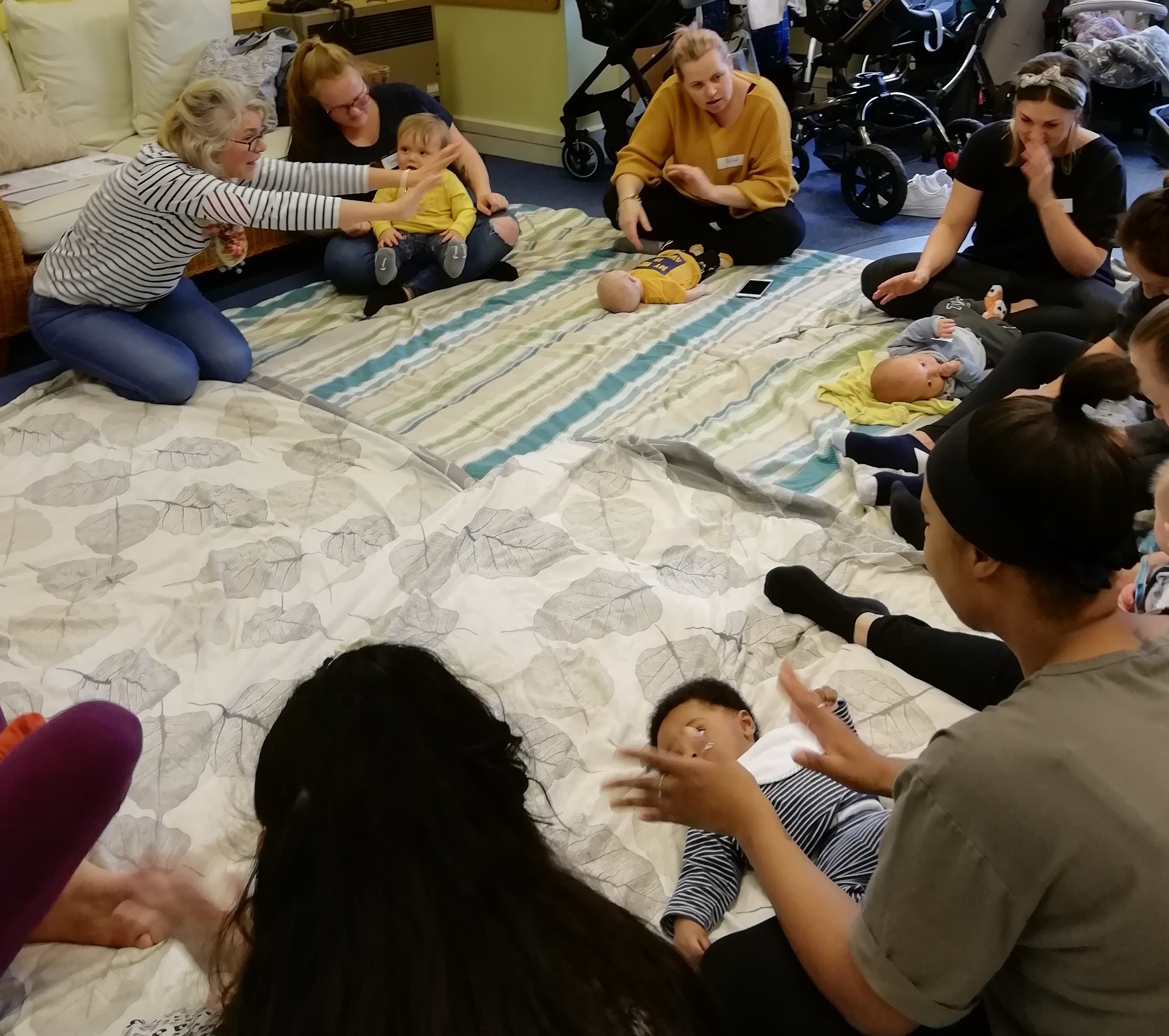
Side Quote Color:
News: update on Peep in Australia – empowering families in every state and territory
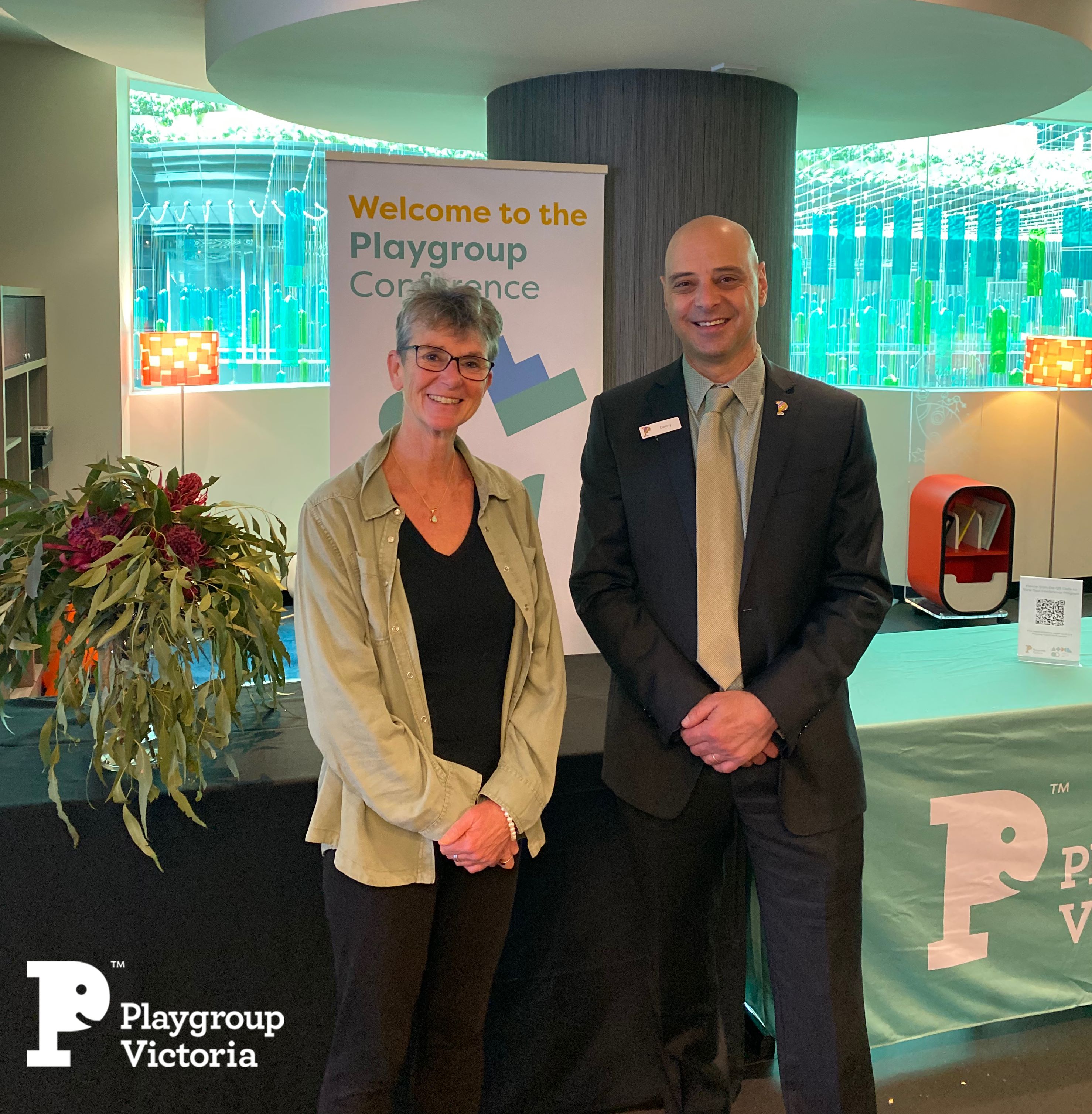 In the autumn, our CEO Dr Sally Smith and our National Training and Accreditation Manager Liz Ersoy visited our Peep partners in Melbourne. Playgroup Victoria hold the exclusive licence for training practitioners to deliver the Peep Learning Together and Peep Antenatal Programmes in Australia.
In the autumn, our CEO Dr Sally Smith and our National Training and Accreditation Manager Liz Ersoy visited our Peep partners in Melbourne. Playgroup Victoria hold the exclusive licence for training practitioners to deliver the Peep Learning Together and Peep Antenatal Programmes in Australia.
Claire Georgiou is Playgroup Victoria’s Peep National Manager and has been at the heart of Peep training and support in Australia for the last few years. By continuing to offer training online, establishing communities of practice and fostering valuable partnerships, the Peep programme is now being used in every state and territory across Australia!
This year Claire will be pulling on her travelling boots, thanks to securing government funding to train and support Peep trainers across five states: Victoria, Northern Territory, South Australia, Tasmania and New South Wales. You can find out more about Peep Training in Australia or contact Claire here: www.playgroup.org.au/for-professionals/peep/.
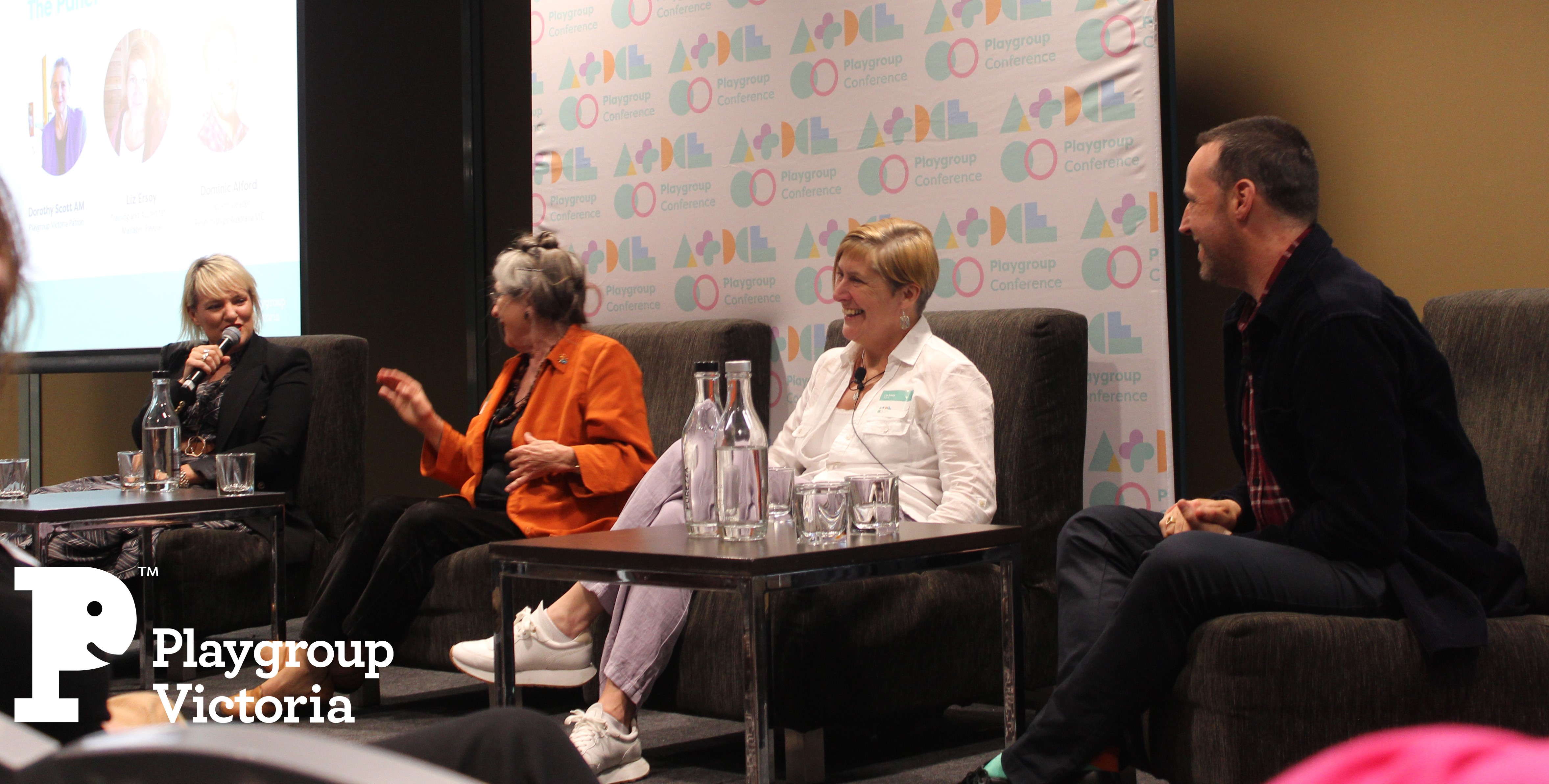
Peep was a focus of the Playgroup Victoria Conference, where 300+ professionals from a wide range of early years settings created a really lively atmosphere.
Sally gave a keynote speech about Peep, Claire led a workshop focusing on Peep and the home learning environment, and Liz participated in a panel discussion focusing on children’s agency in the early years.
The trip also gave Sally, Liz and Claire the opportunity to visit some brilliant Peep groups and have valuable discussions with families, professionals and researchers. These included the Parenting Research Centre, the Australian Catholic University, Thrive by Five, Monash University, the Tomorrow Today Foundation, Milla Milla Aboriginal Playgroup, and many other early years, family support and health organisations.
Images:
Top right: Peeple CEO Sally Smith and Playgroup Victoria CEO Danny Schwarz
Above right (l-r): Panel host ABC broadcaster and writer Jacinta Parsons, Dorothy Scott AM, Playgroup Victoria Patron, Liz Ersoy, Training and Accreditation Manager, Peeple UK, Dominic Alford, Programs Leader, Relationships Australia VIC
Left: Liz, Sally and Claire Georgiou
Below: Playgroup Victoria staff and board, Sally and Liz
Feature box colour:
Read more:
> Interview with Peeple CEO Dr Sally Smith
> Peep in Australia
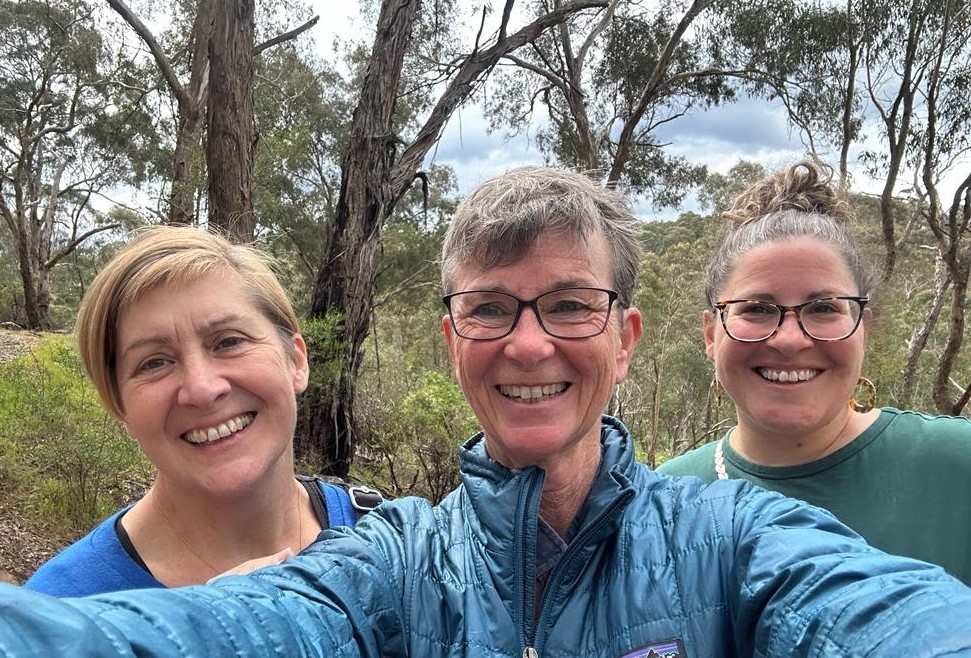
Side Quote Color:
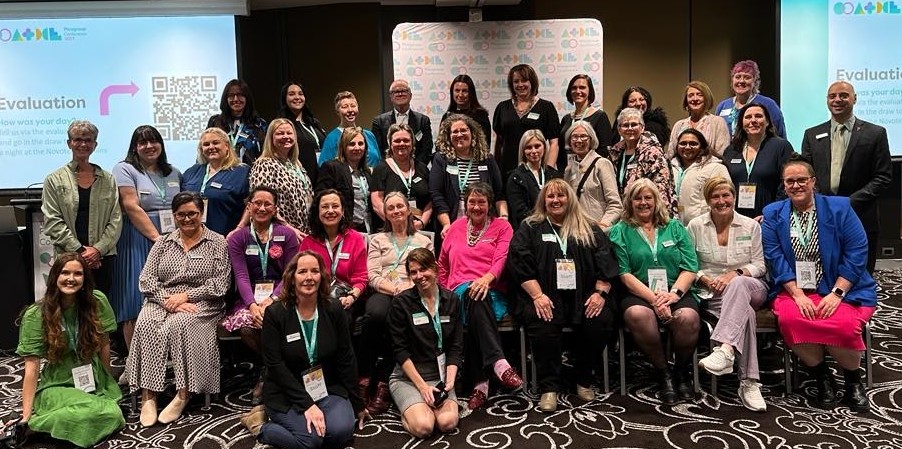
News & Blogs
> News: Remembering Teresa Smith, former Peeple Trustee
We celebrate the life of Teresa Smith: one of the original advisors when Peeple was founded, later Chair of Peeple Trustees, and always a joy and privilege to be around - read more
> News: New Peep TALK programme and training
Peep TALK is our new programme created for practitioners to help families foster their young child's speech, language and communication development in everyday life. Created by Peeple in collaboration with Speech and Language Therapists, Peep TALK emphasises how and why everyday interactions, songs, stories and play support the development of communication skills within the home.
- read more
> News: Peeple Family Fun Day
CBeebies star Nigel Clarke joined our recent Family Fun Day at the Peeple Centre in Oxford. 400 babies, children, parents and carers enjoyed a day of free activities with local partners including The Story Museum, Ashmolean Museum and Oxfordshire Libraries - read more
> Blog: 3 key messages from new Sure Start research for organisations using Peep Programmes
Find out how and why the new research findings are echoed in Peep delivery - from engaging families who might most benefit, to having a joined-up approach, to narrowing the attainment gap - read more
> News: our next free info session about Practitioner Accreditation
Find out how you or Peep Learning Together Programme-trained colleagues can complete the Practitioner Accreditation unit as part of your Peep delivery:
Join our next session on Wednesday 8th May 3.30 - 4.30pm
> Email us and we'll send you a Teams link for your calendar: pa@peeple.org.uk
> News: update on Peep in Australia – empowering families in every state and territory
A recent visit enabled our Peeple UK CEO and Training Manager to catch up with colleagues at Playgroup Victoria, the Peep Training licence holder in Australia - meetings lots of families and professionals, and presenting at their conference - read more
> News: Remembering Sir Tim Brighouse - former Peeple Trustee
We were very sad to hear of the death of Professor Sir Tim Brighouse on 16 December 2023. Tim was one of the great minds behind Peeple, and went on to serve as a trustee - read more
> Blog: Growing Minds - lessons learned and getting involved
Our third Learning Event enabled us to reflect on the last few months in our Growing Minds collaborative, community project that helps improve young children's development and outcomes - what we did, what changed within our communities, and what we learned - read more
> News: Narrowing the attainment gap - Learning Together Study update
Further analysis of our RCT study has shown that Peep made the greatest difference to children eligible for Early Years Pupil Premium - they made an additional 4 months' progress in core language skills and in communication, and 3 months' additional progress in early literacy development - read more
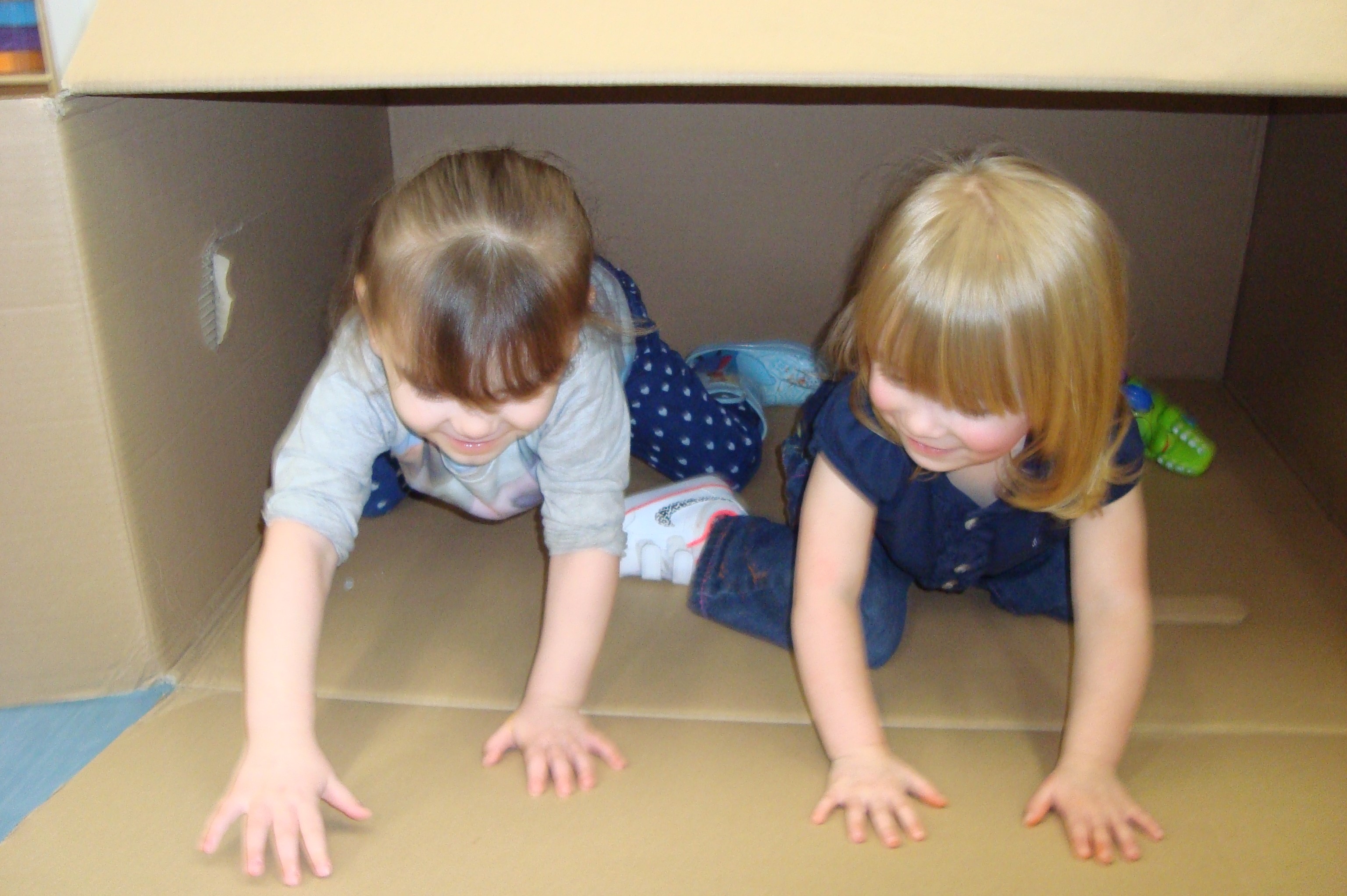 > Blog: Everyday play with free, everyday things
> Blog: Everyday play with free, everyday things
Children love exploratory play, experimenting with the objects around them. When you harness this curiosity together, it might surprise you what fun you can have. Check out our list of everyday objects and ideas for how they can be used in play - read more
> News: Rod's Bicycling for Books campaign to get books into the hands of children is complete!
Cycling 745 miles in 90 hours to raise over £6,000 for Oxford Peep's Dolly Parton Imagination Library - helping to provide the gift of reading by providing a free book every month for local children - read more
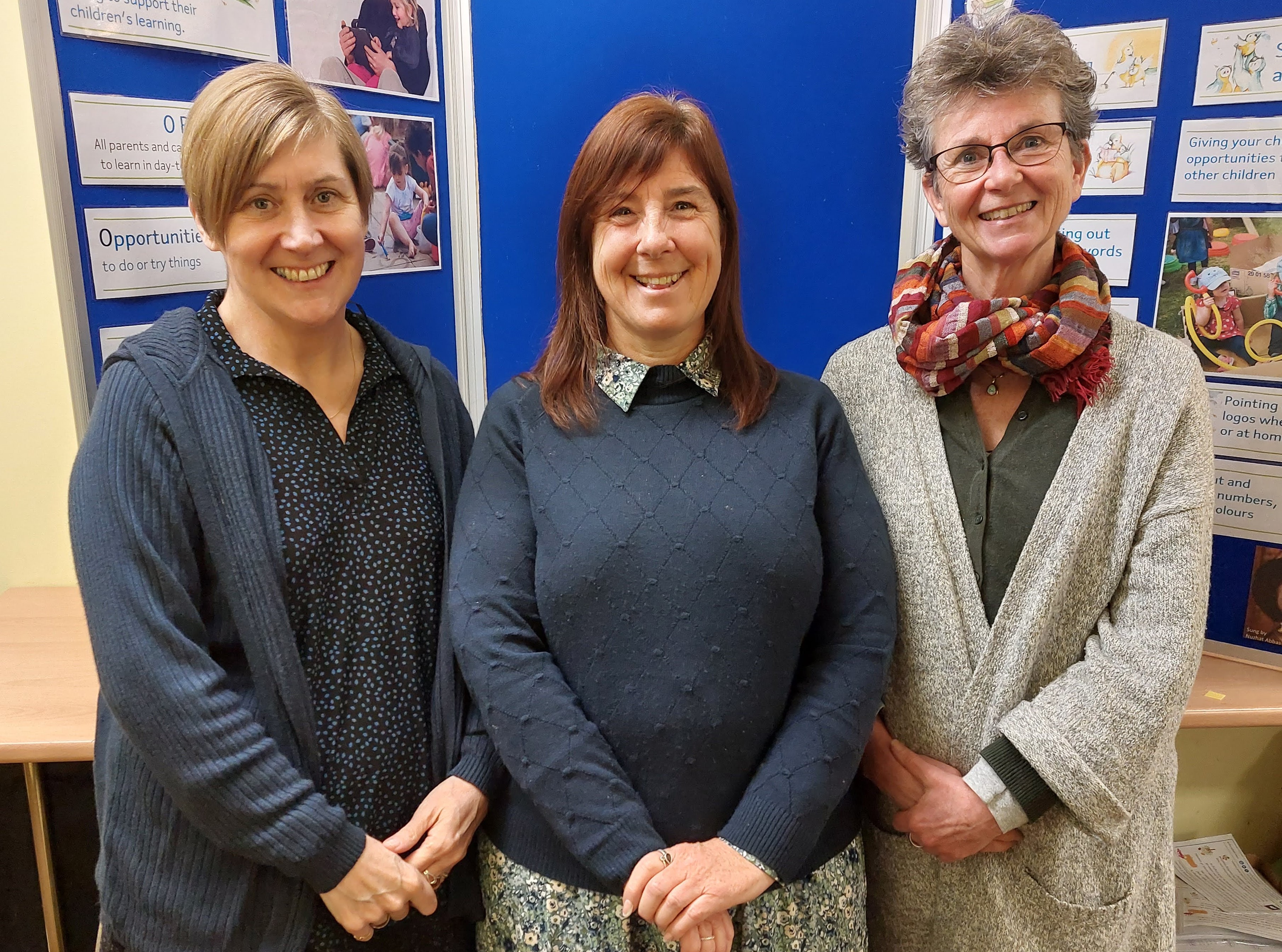 > Blog: Supporting the Peep Progression Pathway - England
> Blog: Supporting the Peep Progression Pathway - England
Our Adult Learning Development Manager for England began her Peep journey back in 2010 as a Children's Centre teacher in Leicester. She's now supporting Peep practitioners to use the Peep Progression Pathway, enabling parents to gain qualification units - read more
> Blog: Ayrshire College's innovative early years offer
Early Learning and Childcare students at Ayrshire College are given the opportunity to support Peep sessions for families, alongside their Peep-trained lecturers - improving their skills and experience in communicating and engaging with parents - read more
Feature box colour:
Side Quote Color:
Blog: Growing Minds - lessons learned and getting involved
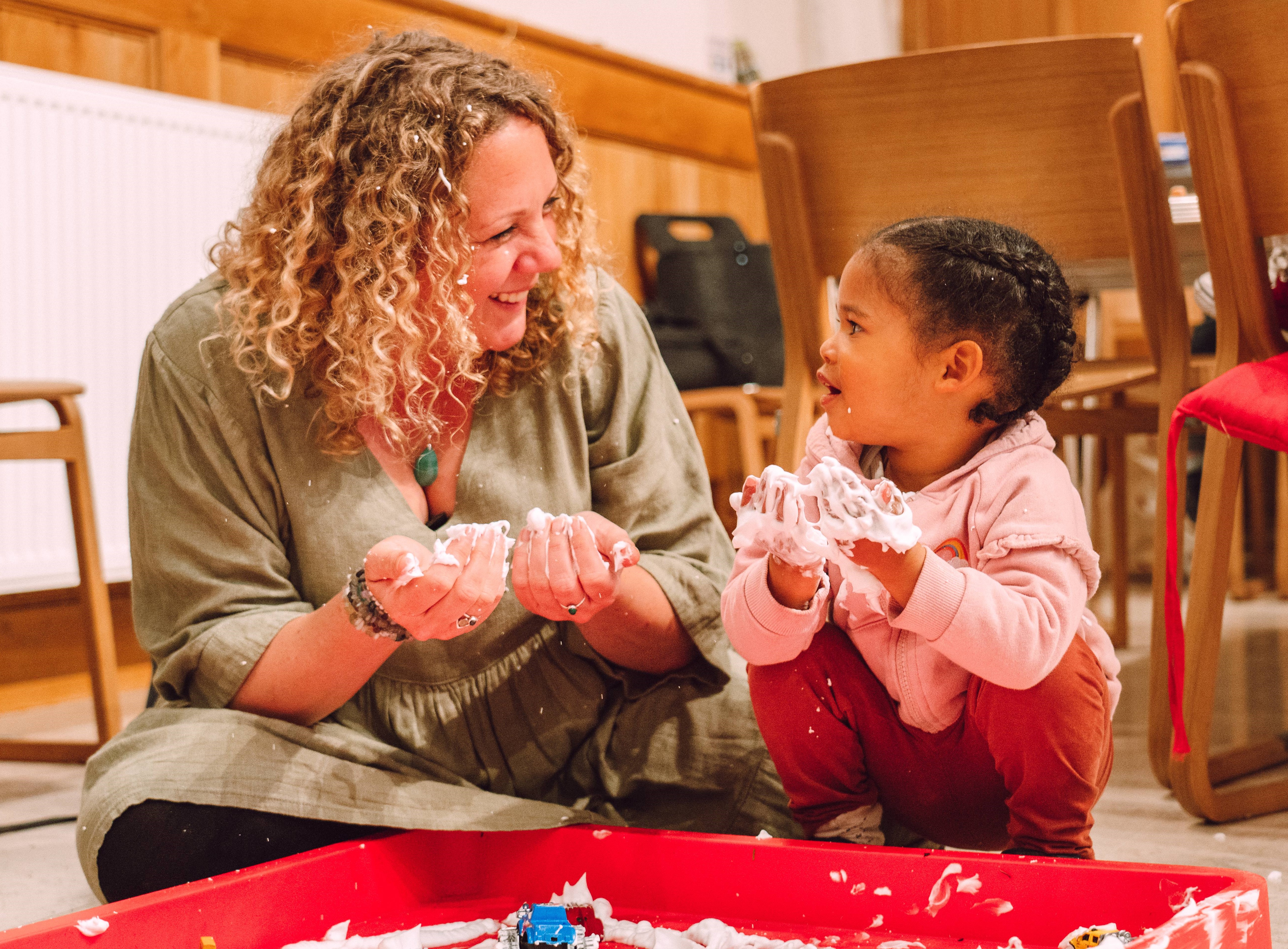
Our third Growing Minds Learning Event in November enabled us to reflect on the last few months - what we did, what changed within our communities, and what we learned - helping us to plan for the year ahead.
Growing Minds is a collaborative, community project that supports and improves young children’s development, school readiness and life chances. We do this by bringing together experienced organisations, local parents and carers, and tried-and-tested interventions. It is led by a partnership of third sector organisations - Peeple, Home-Start Oxford and the Berin Centre – working together in the Littlemore and Berinsfield areas of Oxford and south Oxfordshire.
We really appreciate the positive and thoughtful contributions from everyone who attended, and the generosity of our hosts The Story Museum in Oxford.
Read on – and if you’d like to commission, fund, signpost, find out more, or attend any of our Growing Minds local provision for families - then do get in touch: becky.young@peeple.org.uk.
Here are some of our successes and challenges:
We’re proud of our new 5-minute Growing Minds video, which provides an overview of the project for families and professionals. It captures the voices of partners, practitioners and parents, reflecting on the impact that Growing Minds has had on their lives. Do watch it if you have a few minutes!
Expanding our reach across the communities:
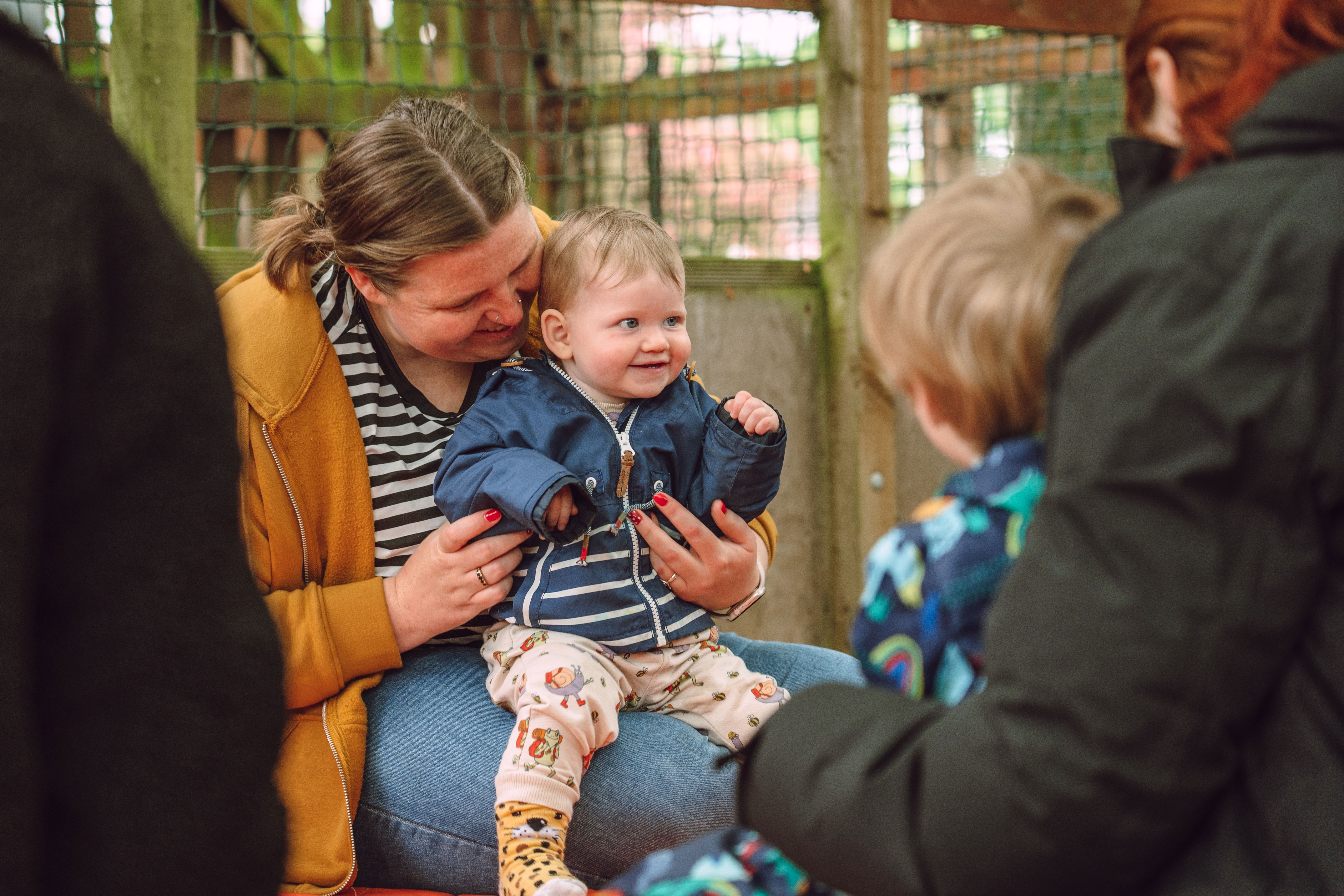 There are now over 500 children registered with Growing Minds. A variety of support is offered, based on families’ interests and needs, ranging from the Dolly Parton Imagination Library books that are posted free of charge to any family wanting to sign up, to Stay and Plays, groups and 1-to-1 sessions for parents and children. Stories shared by Growing Minds parents about their own experiences highlighted the value of this ‘progressive universalism’ approach. For some families, the initial contact about the Imagination Library books provides the first step into accessing other local services. As Sally Smith, Peeple CEO explained, the latest findings from the Learning Together Study show that the Peep Learning Together Programme improves outcomes for all children but has the greatest impact for those living in disadvantaged circumstances.
There are now over 500 children registered with Growing Minds. A variety of support is offered, based on families’ interests and needs, ranging from the Dolly Parton Imagination Library books that are posted free of charge to any family wanting to sign up, to Stay and Plays, groups and 1-to-1 sessions for parents and children. Stories shared by Growing Minds parents about their own experiences highlighted the value of this ‘progressive universalism’ approach. For some families, the initial contact about the Imagination Library books provides the first step into accessing other local services. As Sally Smith, Peeple CEO explained, the latest findings from the Learning Together Study show that the Peep Learning Together Programme improves outcomes for all children but has the greatest impact for those living in disadvantaged circumstances.
School and community links:
Katie Screaton, Executive Headteacher of John Henry Newman Academy, enthused us all with her passionate presentation on the impact that Growing Minds is having in Littlemore. Before it began, there was scarce community support for children under five in Littlemore, so it marks a significant transformation. She pointed out that Growing Minds is fostering a sense of community, diminishing isolation, and boosting parental confidence and enjoyment, helping more parents to see and value their role as educators.
Practitioners from the school and Growing Minds deliver a range of sessions with families, often combining topics from the Peep Learning Together Programme with a particular aspect of everyday life, all of which support children’s development and the home learning environment. Following conversations about cost of living issues, for example, the local St Mary and St Nicholas Church donated a number of slow cookers. These were given to families, who also attended a six-week course where parents and children had fun preparing dinner together (cowboy casserole, anyone?) then taking the food home to cook in their slow cooker.
Other groups include Nature Tots, a Special Educational Needs (SEN) parent support group, and Stay and Play sessions focusing on supporting school readiness. For the Growing Minds children who started in Reception this year (aged 4-5), Katie's initial observations were that they have all settled well, and are confident explorers of the Early Years Foundation Stage.
This is the first cohort of Growing Minds children to have started school. It’s exciting and we cannot wait to see the impact that Growing Minds has over the coming years, though we are cautious that this year group will have been most heavily affected by lockdowns and the lack of provision that was available during those periods. We are very fortunate to have such a community-focussed school on our doorstep, and we really appreciate the collaboration that has such a wide impact.
Impact stories from parents:
Gathering stories from families about their experiences is an important part of the project. Reading and discussing the stories in groups is always a popular part of the Learning Day. We pulled together common themes, which included the project being as meaningful for parents as it was for children, delivery being done with families not to them, reduced social isolation and easy-to-access support. Statutory services and professionals are stretched to the limit, often accompanied by long waiting lists, and finding an understanding and friendly face was always appreciated by families.
Below you can see a short version of one of the stories.
Local partnership work:
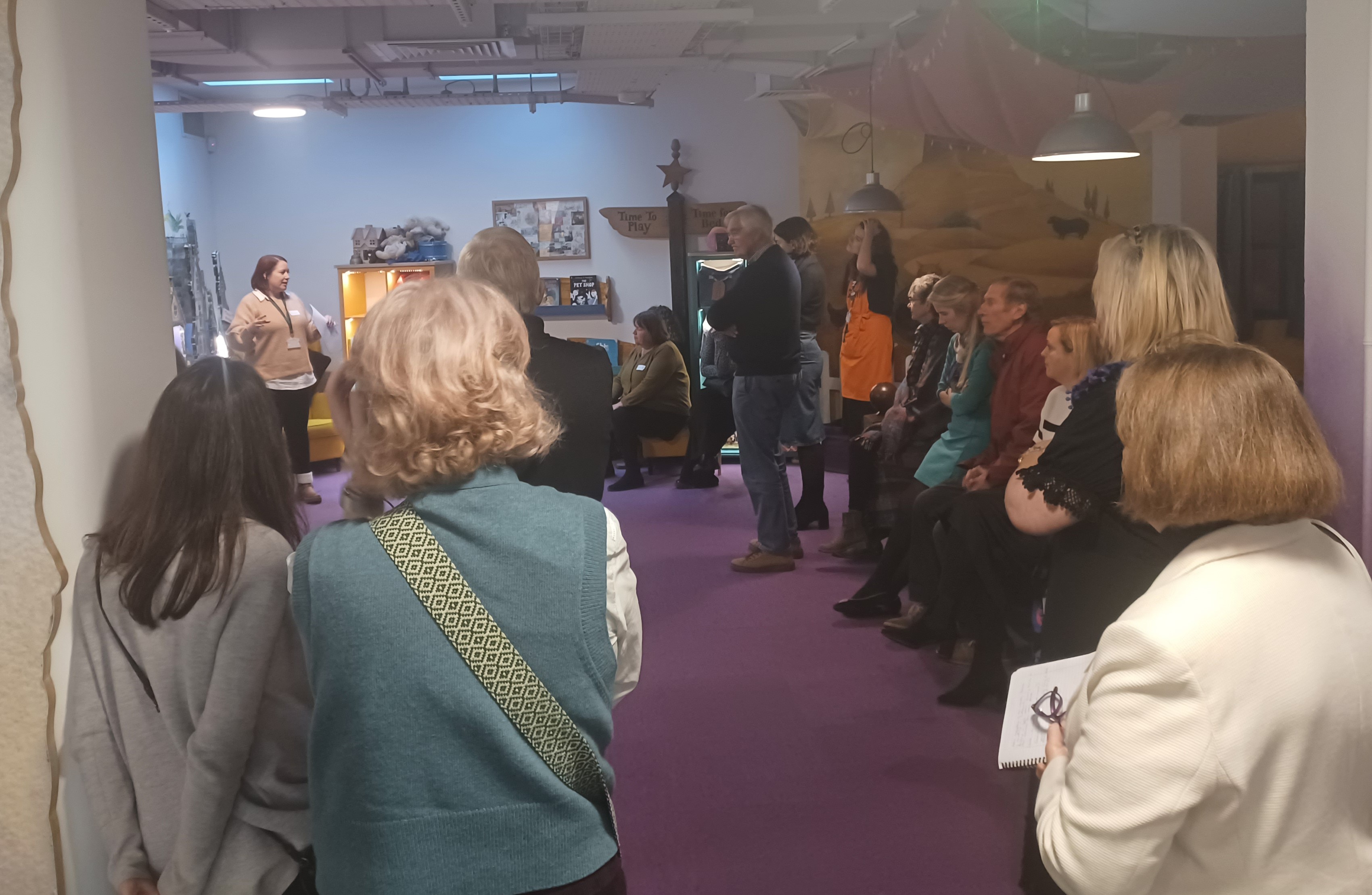 Staff from the The Story Museum took us into their small world area to deliver a section on their community outreach work with Growing Minds. After exploring the room, Victoria Jones, the Museum’s EYFS Co‑ordinator, gave us a captivating demonstration of their storytelling approach and the profound impact that it can have on people of all ages. Story Museum staff inspired families during a dozen Stay and Play sessions in Littlemore – our work shares numerous similarities, and it was a great opportunity to work together. Their sessions culminated in a visit by families to the Story Museum in early November, which went down a treat (and is well worth a visit!).
Staff from the The Story Museum took us into their small world area to deliver a section on their community outreach work with Growing Minds. After exploring the room, Victoria Jones, the Museum’s EYFS Co‑ordinator, gave us a captivating demonstration of their storytelling approach and the profound impact that it can have on people of all ages. Story Museum staff inspired families during a dozen Stay and Play sessions in Littlemore – our work shares numerous similarities, and it was a great opportunity to work together. Their sessions culminated in a visit by families to the Story Museum in early November, which went down a treat (and is well worth a visit!).
Lessons learned:
We reflected on what we had learned over the past few months, and our progress on the action plan from our independent evaluation. For example:
- We initially relied heavily on statutory services for recruitment or registrations of families. These referrals from birth registrars are very important as they allow families to hear about the local provision from very early in their child’s life. However, using a more mixed approach through social media, local advertising, schools, nurseries and other community groups means that our registration rate has significantly improved.
- Following feedback from families about the times of our Peep groups, we swapped the toddler group to the morning and babies to the afternoon, and attendance has improved.
- We piloted a community Transition group in the summer for Littlemore families whose children would be starting school outside the local area. This was less well attended than most of our groups, partly for logistical reasons – more than half those invited said they worked during the week. However, we’d also had less interaction with these families when children were younger, due to Covid. This really speaks to the power of the earliest contact with families, building relationships and being able to support them sensitively from when their babies are small. Families were still interested though, with several saying they would have found this type of course useful before starting nursery as well as school. We were still able to offer every family support, and an ideas mat of appropriate activities in preparation for school transition. We will reflect further on our learning in the design of these sessions later in this academic year.
Partnership working and future opportunities:
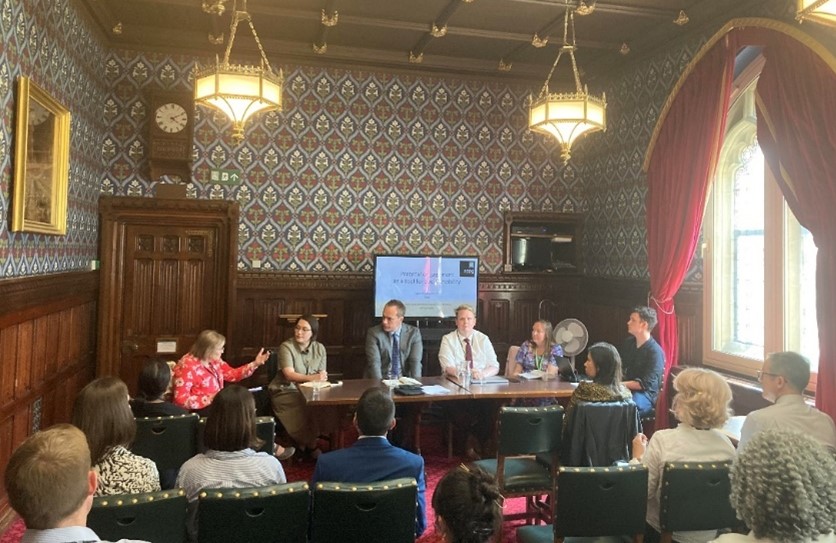 We were invited by the Sutton Trust to speak about Growing Minds at the Social Mobility All Party Parliamentary Group (APPG) at the House of Commons in July. The theme was parental engagement as a tool for social mobility, and it was an honour to share our learning around engaging with parents as early as possible in children’s lives.
We were invited by the Sutton Trust to speak about Growing Minds at the Social Mobility All Party Parliamentary Group (APPG) at the House of Commons in July. The theme was parental engagement as a tool for social mobility, and it was an honour to share our learning around engaging with parents as early as possible in children’s lives.- Talking and working with other organisations to learn from each other is an important part of Growing Minds, both locally and further afield. Over the past few months we’ve enjoyed collaborating with organisations such as Oxford Inclusive Economy Partnership (OIEP), Oxford University's Brain Story and Thrive at Five in Stoke-on-Trent.
What next? (how we can help you and you can help us)
We hope you agree that our services are valuable – but they need to be funded. We still need some funding for this financial year (2023/24) and the next. There are (as yet) no government-funded Family Hubs in Oxfordshire.
Do get in touch:
- if you are, or you have any contact with, a local commissioner of family support services or other potential funders (individuals, companies or charitable trusts), who may like to find out more about what we do, or to come along to our next event.
- if you’re a parent, carer or professional who lives or works in Littlemore or Berinsfield, and you want to find out more or come along to one of our sessions, or signpost other local families.
- if you’re part of a like-minded project elsewhere and would like to share ideas.
Becky Young, Growing Minds Manager - email becky.young@peeple.org.uk or tel 01865 395145
Parent story (short version):
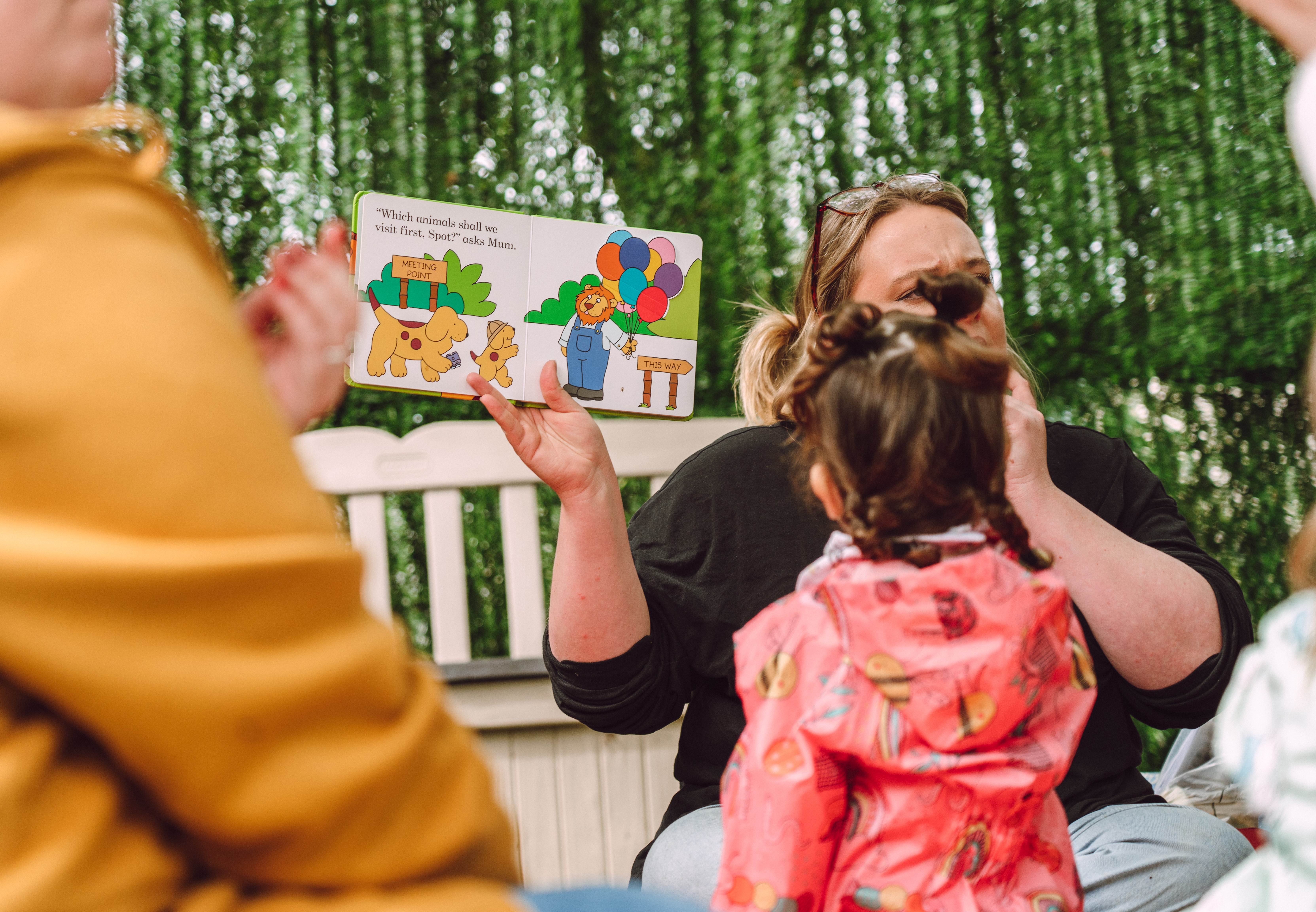 “I was a bit nervous the first time but everyone at Growing Minds and the Berin Centre was really welcoming. The first group I came to was a baby group. Each week is different, you learn so much and it's to improve your knowledge of certain things so you can enhance your child's life for the better. It was important for me to not just sit in the house with my little girl, it gets us out and interacting with people that we normally wouldn't be.
“I was a bit nervous the first time but everyone at Growing Minds and the Berin Centre was really welcoming. The first group I came to was a baby group. Each week is different, you learn so much and it's to improve your knowledge of certain things so you can enhance your child's life for the better. It was important for me to not just sit in the house with my little girl, it gets us out and interacting with people that we normally wouldn't be.
There's quite a lot of us who have similar ages of children, it's really good to see the same people every week, it helps us build the relationships. It's amazing, the other parents and their kids – it was really nice and friendly but if you're having a bad day like you can just tell someone and they'll try and help you. There won’t be any judgement which is really good because my life is chaos.
In the groups, we learn things to do with a child. There was something to do with the brain and I can see the image, that's really stuck with me. I'm quite a visual person so that really helped me. One week we also did about routines. I have difficulty with some of it and it was really reassuring that everyone goes through it which is a relief, and you can talk about it.
I also liked the making marks one that we did which was basically just like messy play. She didn't really get too dirty which was good for me, but she's done it since and she loves it, then I think oh I could do water play at home or I can do this at home - it's just fun.
This is somewhere that you're accepted and listened to. I just think how amazing spaces are like this. I've always wanted a child, I will do anything for her. I just want her to have the best life and coming here definitely helped that and it helps me as well. Parenting is hard, especially when social media says ‘do this’, ‘don't do this’ and it's so conflicting, you just want the best for you and your child. Mum guilt is so difficult but here they encourage you. I feel more connected with the other parents.”
Blog: Growing Minds - lessons learned about collaborative community support
Feature box colour:
"I just want her to have the best life and coming here definitely helped that and it helps me as well... Mum guilt is so difficult but here they encourage you. I feel more connected with the other parents.”
Read one parent's story below.
Find out more about getting involved with Growing Minds, as a parent, practitioner, commissioner or funder:
email becky.young@peeple.org.uk or tel 01865 395145

